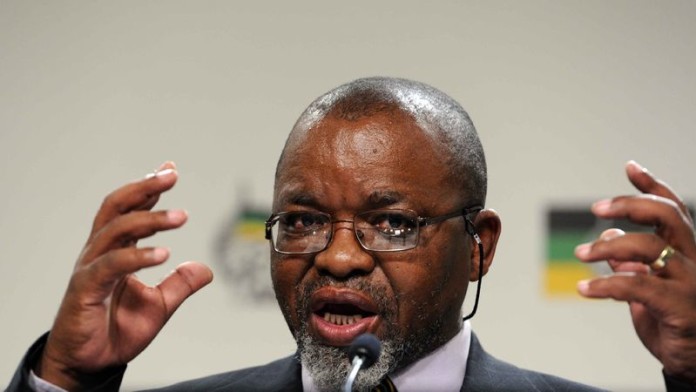
THE South African government will shortly begin discussions with investors about starting a power generation company outside Eskom, South African minerals and energy minister, Gwede Mantashe, said at the opening of the 26th annual Investing in African Mining Indaba in Cape Town today.
The minister’s speech, which prioritised energy generation for the industry but also touched on issues like regulatory certainty, community unrest and promotion of exploration, responded to many of the concerns that have been regularly raised by the industry.
He said structural constraints and power outages will contribute to South Africa’s forecast GDP growth of less than 1% this year. Power problems were both load-shedding and the cost of energy, which was causing the economy to de-industrialise.
Some of the steps being taken to address energy shortages include that mining companies will only need to be registered, but will not need a licence, to generate power for their own use. “We have to go back to the days when we had a surplus of energy, as a surplus and competition in generation will push the price of electricity down,” said Mantashe.
His department was in the process of gazetting the revised regulations that will allow self and municipal generation, which will close the energy gap.
In December a request for information was issued calling for solutions on providing expeditious power solutions for the grid. This would give the department a sense of what power could be made available within the next 18 months.
Other steps were the conversion of Eskom’s diesel peaking power stations to gas and, while transitioning to low-carbon energy, continuing to explore cleaner coal technologies. By the end of this year, the first hydrogen-fuelled mining truck was expected to be available. The promotion of hydrogen fuelled transport would help to boost demand for platinum as a catalyst as well as help to reduce carbon emissions.
Mantashe said while the South African economy could grow through local beneficiation of minerals, he understood that the speed of beneficiation depended on the price of electricity.
The department granted 28 mining rights in coal, iron ore and manganese in 2018, representing R1bn of potential investment, and the department wanted to ensure those projects were delivered. Since most commodity prices are expected to continue rising in coming years, this should encourage mining projects in coming years. The fourth industrial revolution should also provide new opportunities for the industry.
Mantashe acknowledged that policy regulation and certainty was key for the sector. “We have found the more we engage with the sector, the better the regulatory framework. Out of engagement we create certainty.”
He said the merger of mining and energy into a single department last year should result in a department with adequate capacity and efficiency and responsive to the needs of the industry.
Mantashe also called on mining companies to treat communities as partners, rather than enemies, which would encourage them to protect the mines. He said implementation of social and labour plans should be a priority.











